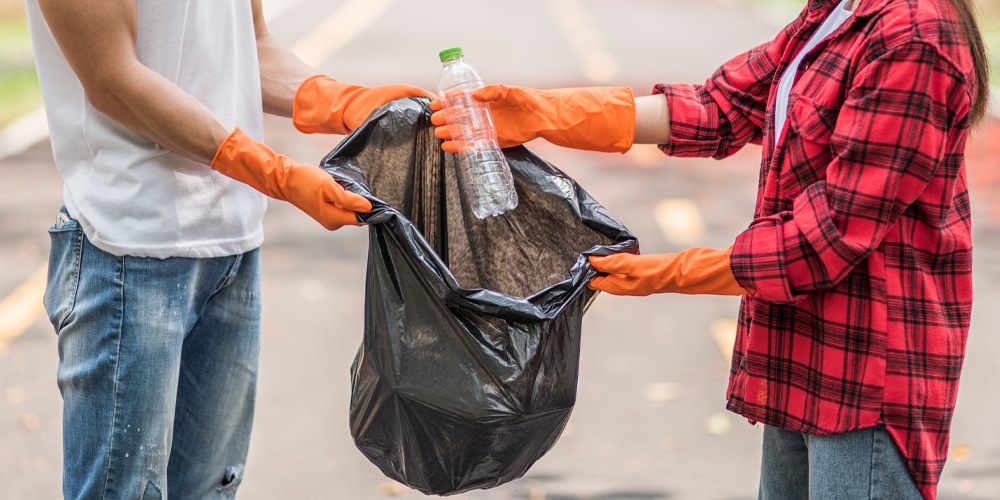The waste management industry faces significant challenges in terms of transparency, traceability, and efficiency. Blockchain technology has emerged as a potential solution to revolutionize the waste management sector by providing greater transparency, security, and accountability. In this article, we explore the ways in which blockchain can transform the waste management industry.
Introduction to the Waste Management Industry
The waste management industry plays a crucial role in handling waste, promoting recycling, and ensuring environmental sustainability. However, traditional waste management systems often face inefficiencies, lack of transparency, and difficulty in tracking waste from its origin to its final destination.
Benefits of Blockchain in Waste Management

Blockchain technology offers several benefits that can address the challenges faced by the waste management industry:
- Transparency and Traceability
Blockchain provides a transparent and immutable ledger that can track waste from its generation to its disposal. This ensures a complete and auditable record of waste movements, enhancing transparency and traceability.
- Enhanced Efficiency
Blockchain automates and streamlines waste management processes by eliminating intermediaries and reducing paperwork. This improves operational efficiency and reduces costs associated with manual record-keeping and administrative tasks.
- Secure Data Management
Blockchain offers robust data security and integrity through its decentralized nature and cryptographic techniques. This protects sensitive waste management data, prevents data tampering, and enhances overall data management.
Practical Applications of Blockchain in Waste Management
- Waste Tracking and Traceability
Blockchain can be utilized to create a transparent and auditable system for tracking waste movement. Each waste transaction, from generation to disposal, can be recorded on the blockchain, allowing stakeholders to verify and trace waste origin, handling, and treatment.
- Smart Bin Monitoring
Blockchain-enabled smart bins can monitor waste levels, optimize waste collection routes, and facilitate efficient waste management. Smart bins can trigger automated waste collection requests and provide real-time data on bin status, helping to streamline waste collection operations.
- Recycling and Waste Exchange Platforms
Blockchain platforms can connect waste producers, recyclers, and buyers, facilitating transparent and efficient waste exchange. This encourages recycling and promotes the circular economy by matching waste generators with potential buyers who can utilize the waste as a resource.
- Incentive Programs for Waste Reduction
Blockchain-based incentive programs can encourage individuals and organizations to reduce waste generation and promote recycling. Participants can earn rewards or tokens for their sustainable waste management practices, encouraging active participation and behavioral change.
Challenges and Considerations
While blockchain holds immense potential for transforming the waste management industry, there are certain challenges and considerations that need to be addressed:
- Standardization and Interoperability
Establishing common standards and ensuring interoperability among different waste management stakeholders and blockchain platforms is crucial for seamless data exchange and collaboration.
- Adoption and Integration
Widespread adoption of blockchain technology in the waste management sector requires education, awareness, and willingness to embrace digital transformation. Integration with existing waste management systems and infrastructure may also pose technical challenges.
- Scalability and Cost
Blockchain scalability remains a concern, as the waste management industry generates a large volume of transactions. Ensuring cost-effectiveness and scalability of blockchain solutions is essential for widespread adoption.
Blockchain and Waste Data Management
Blockchain technology can revolutionize waste data management by providing secure and efficient ways to collect, store, and analyze waste-related data. Here are some key aspects to consider:
1. Data Collection and Sensors
Blockchain can integrate with IoT devices and sensors to collect real-time data on waste generation, composition, and disposal. This data can provide valuable insights for waste management decision-making and optimization.
2. Secure Data Sharing and Collaboration
Blockchain enables secure data sharing and collaboration among waste management stakeholders, such as waste producers, recyclers, and regulatory authorities. It ensures data integrity, privacy, and access control, fostering trust and cooperation.
3. Data Analytics and Insights
Blockchain can facilitate advanced data analytics and predictive modeling to identify trends, optimize waste management processes, and develop sustainable waste reduction strategies. It enables data-driven decision-making for improved efficiency and environmental impact.
Blockchain and Supply Chain Transparency in Waste Management
Blockchain can enhance transparency in the waste management supply chain, providing visibility into the entire lifecycle of waste. Consider these aspects:
1. Supply Chain Traceability
Blockchain enables the tracking and traceability of waste materials from their origin through various stages, including collection, transport, treatment, and final disposal. This transparency promotes responsible waste management practices and reduces the risk of illegal dumping.
2. Certification and Compliance
Blockchain can facilitate the verification and certification of waste management practices, ensuring compliance with regulations and environmental standards. This helps establish trust and accountability throughout the supply chain.
3. Auditing and Reporting
Blockchain provides an immutable audit trail of waste-related transactions and activities. This facilitates accurate reporting, auditing, and verification, supporting regulatory compliance and sustainability reporting.
Blockchain and Incentive Mechanisms for Sustainable Waste Management
Blockchain-based incentive mechanisms can encourage individuals and organizations to adopt sustainable waste management practices. Explore these key aspects:
1. Tokenized Incentive Systems
Blockchain enables the creation of tokenized incentive systems, where participants earn rewards or tokens for sustainable waste management behaviors, such as recycling, waste reduction, or proper disposal. This promotes active engagement and positive behavioral change.
2. Decentralized Waste Markets
Blockchain platforms can facilitate decentralized waste markets, connecting waste generators with potential buyers or recyclers. These markets encourage the valorization of waste as a resource and promote a circular economy.
3. Carbon Credit Trading
Blockchain can support carbon credit trading in the waste management sector, enabling the monetization of emission reduction efforts. This incentivizes waste management practices that contribute to greenhouse gas mitigation.
Blockchain and Carbon Footprint Tracking
Blockchain technology can play a significant role in tracking and reducing carbon footprints. Consider the following aspects:
1. Carbon Emission Data Collection
Blockchain can enable the collection of accurate and real-time carbon emission data from various sources, such as industries, transportation, and energy production. This data forms the basis for effective carbon footprint tracking.
2. Transparent Carbon Markets
Blockchain can facilitate transparent carbon markets where carbon credits can be bought and sold. This encourages businesses to reduce emissions and provides an incentive for carbon reduction initiatives.
3. Smart Contracts for Emission Reduction Projects
Blockchain-based smart contracts can automate the verification and execution of emission reduction projects. This ensures transparency and accountability in achieving carbon reduction goals.
Blockchain and Waste-to-Energy Conversion
Blockchain technology can enhance waste-to-energy conversion processes, promoting sustainable energy production from waste. Consider the following aspects:
1. Waste Tracking and Sorting
Blockchain can track waste materials and their characteristics, aiding in the efficient sorting of waste for energy conversion. This ensures optimal utilization of waste resources and reduces landfill waste.
2. Decentralized Energy Grids
Blockchain can enable the creation of decentralized energy grids, where energy generated from waste-to-energy conversion can be distributed efficiently among users. This promotes energy sustainability and reduces reliance on traditional energy sources.
3. Peer-to-Peer Energy Trading
Blockchain facilitates peer-to-peer energy trading, allowing individuals or businesses to trade excess energy generated from waste conversion. This fosters a localized and sustainable energy ecosystem.
Blockchain and Circular Economy Initiatives
Blockchain can support circular economy initiatives by enabling efficient resource tracking, recycling, and reuse. Consider the following aspects:
1. Material Traceability and Supply Chain Optimization
Blockchain provides transparency in material traceability, ensuring the efficient tracking of recycled materials throughout the supply chain. This facilitates optimized resource allocation and reduces waste generation.
2. Product Lifecycle Management
Blockchain can track the entire lifecycle of a product, from raw material extraction to disposal, ensuring transparency and accountability. This supports the implementation of circular economy principles.
3. Collaborative Networks for Resource Sharing
Blockchain platforms can enable collaborative networks where businesses or individuals can share resources, such as equipment, materials, or expertise. This promotes resource efficiency and reduces the need for new resource extraction.
Blockchain and Decentralized Waste Management Networks
Blockchain technology can facilitate the creation of decentralized waste management networks. Consider the following aspects:
1. Peer-to-Peer Waste Exchange
Blockchain can enable peer-to-peer waste exchange platforms, where waste generators can connect directly with waste receivers, such as recyclers or composters. This streamlines waste management processes and reduces reliance on centralized intermediaries.
2. Transparent Waste Management Data
Blockchain ensures transparency in waste management data by providing a decentralized and immutable ledger. This allows stakeholders to access accurate and real-time information on waste generation, collection, treatment, and disposal.
3. Incentive Mechanisms for Community Participation
Blockchain-based incentive mechanisms can encourage community participation in waste management. Participants can earn tokens or rewards for proper waste disposal, recycling, or participation in cleanup initiatives. This fosters a sense of responsibility and community engagement.
Blockchain and Waste Recycling Supply Chains
Blockchain technology can enhance transparency and efficiency in waste recycling supply chains. Consider the following aspects:
1. Recycling Material Tracking
Blockchain can track the movement of recyclable materials throughout the recycling supply chain, from collection to processing and manufacturing. This ensures the traceability and authenticity of recycled materials, promoting a circular economy.
2. Certification and Standards Compliance
Blockchain can verify the certification and compliance of recycling processes and standards. This enhances trust and confidence in recycled products and reduces the risk of greenwashing.
3. Rewards for Recycling Participation
Blockchain-based platforms can incentivize individuals and businesses to participate in recycling programs. Participants can earn rewards or tokens for their recycling efforts, encouraging greater involvement and behavioral change.
Conclusion
Blockchain technology has the potential to revolutionize the waste management industry by offering transparency, traceability, and efficiency. By leveraging blockchain’s secure and decentralized features, waste management processes can become more streamlined, accountable, and sustainable. While challenges exist, the future of waste management looks promising with blockchain as a transformative tool.
 Crypto Print
Crypto Print



